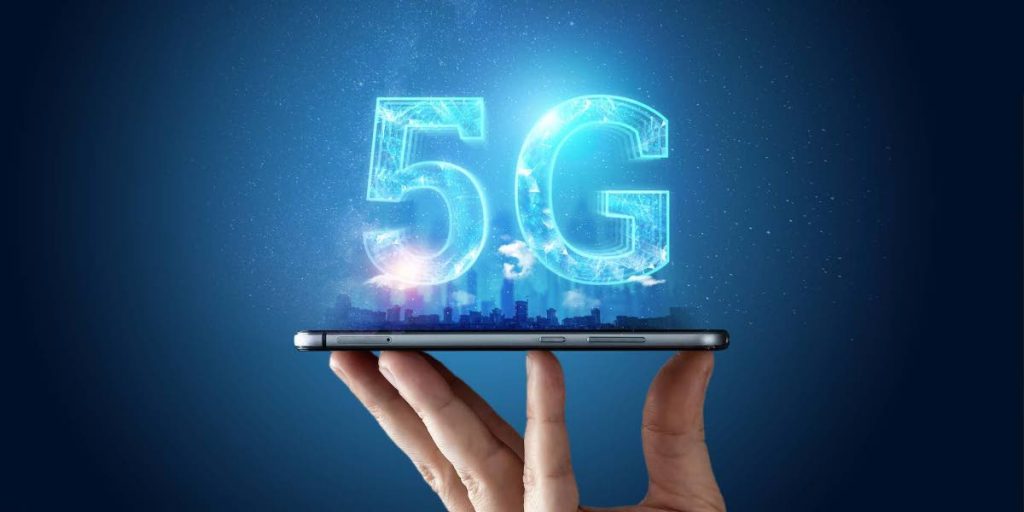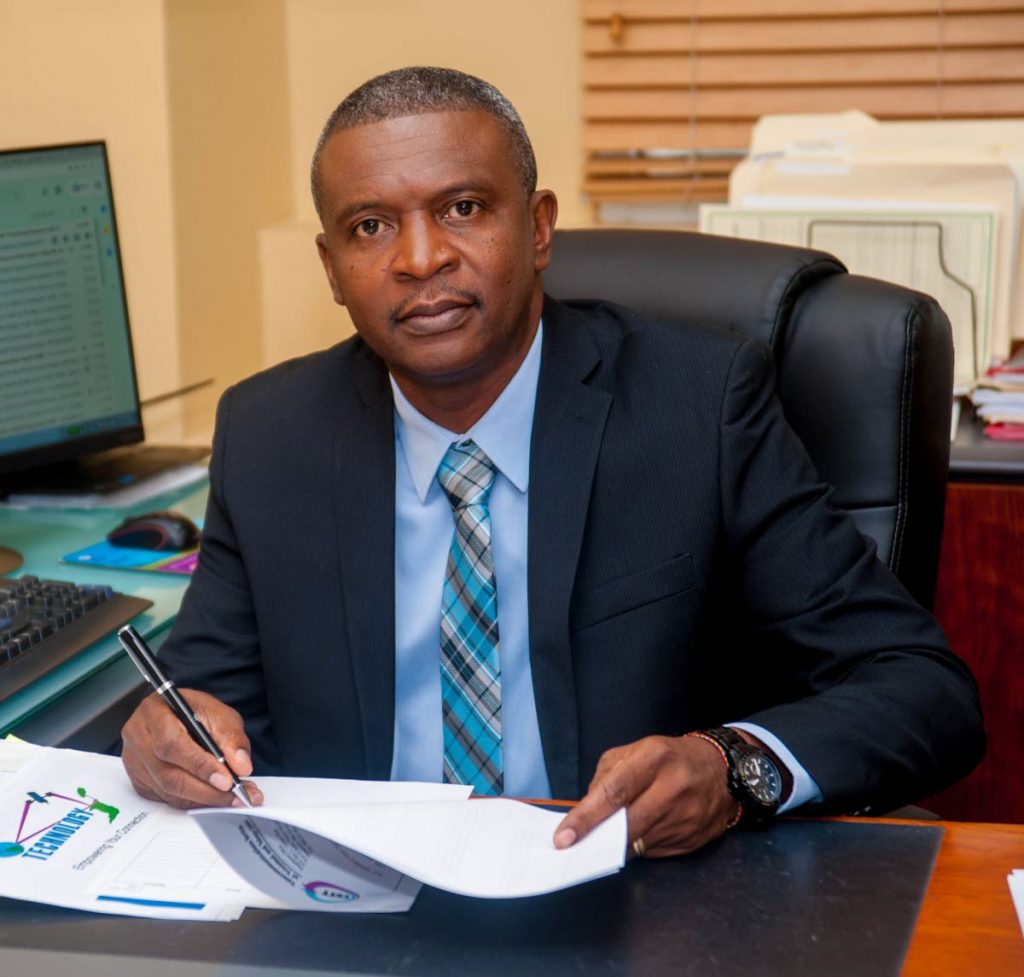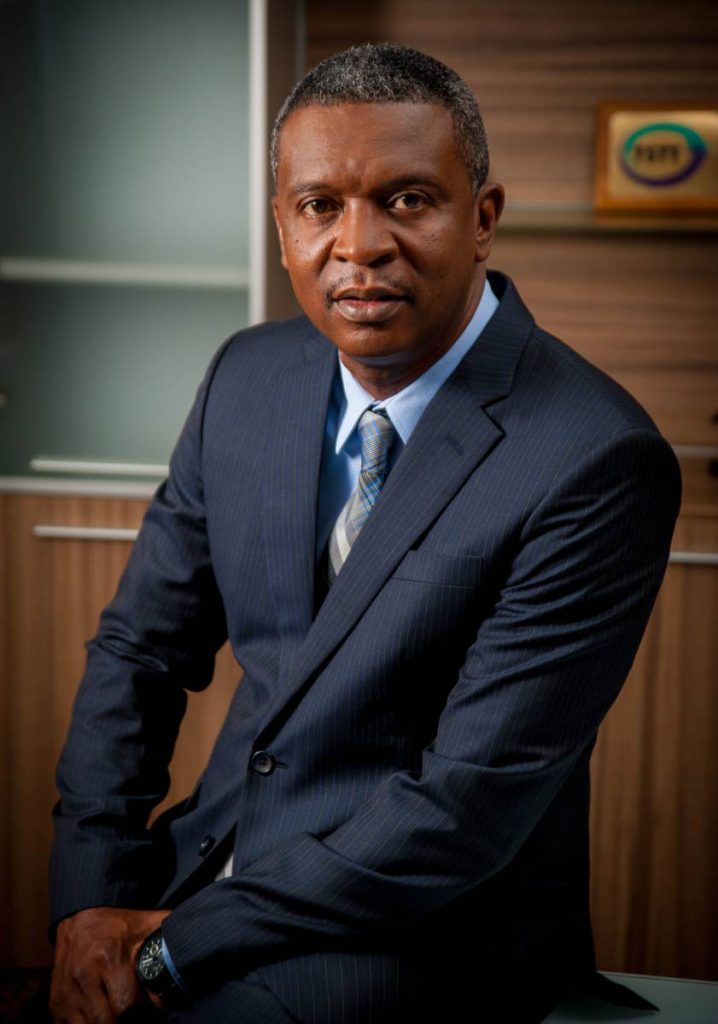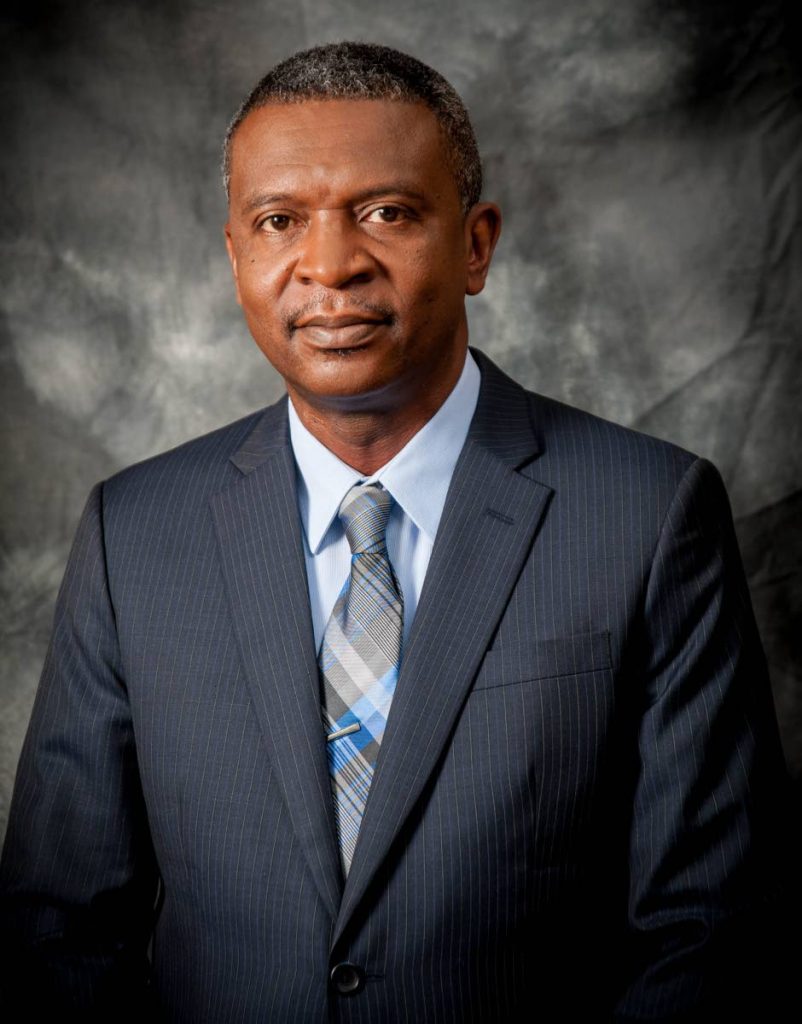The future is 5G

Self-driving cars. Cloud computing. Internet of Things. Healthcare. Education. Virtual reality. This is where technology around the world is heading and, according to TSTT’s chief technology officer Hassel Bacchus, 5G is the technology that is going to take the planet there.
And he knows this because he said 5G will start deploying in TT by the end of this year. “The time has come in this business where the conversation needs to be around solutions."

Bacchus, who has been working with the incumbent operator since 1986, has seen mobile technology evolve from 1G all the way to the 4G/LTE that exists now. “1G was a phone. What you had with 1G was the ability to make calls. With 2G, you could text. 3G is when we got online and when the data really came in. 3G was when we got smartphones, where you could go online and check websites along with other features like MMS. With 4G, we really got faster speeds and connection rates. You were then able to do all what we can do on smartphones today.”
He said 5G will be divided into two arms, the fixed wireless side and the mobile side, as is the case with 4G. "With the current 4G, we have fixed wireless access in 4G – or the technical term we use is TTD LTE – and we have the mobility 4G or your phones which is FDD LTE.” He said the fixed wireless is for services at a fixed location, such as your home, replacing the traditional copper network. “TSTT has in fact embarked on a plan to remove almost all of its copper because it’s not a medium for the delivery of modern services,” added Bacchus.

5G is being trialled around the world with deployment in countries such as the UK and US, with South Korea being the first major deployment in April.
“We’re in the infancy of the global rollout of 5G. Some countries are more advanced than others and for various reasons. We are excited to join the list,” Bacchus said. The evolution of wireless services, he said, was always something that was a priority for TSTT – and it’s about meeting the demands of the customer as well.
“I did a paper at a conference in Argentina that specifically looked at the fixed wireless space and the use of it and how we are using it here and tremendous interest was generated for it because of the cheap cost to deliver the service. When you talk about running large networks, building out fibre networks, even the old copper network that we had, it takes a tremendous amount of money to build them and so the cost to serve each customer is actually quite high compared to using wireless services. The rate at which we went from 1G through to 4G and now 5G has continuously shrunk.” He said the other driver was understanding as an operator, that people’s behaviour changed. “When I was growing up, we used to watch TV in the night in your house for a few hours. My children have no idea what that is like. They don’t look at TV. They only use devices. Computers, tablets and phones.”
Connection in any place
Having spent more than 25 years at TSTT, Bacchus has grown accustomed to the demands of his customers. “All over the world, people don’t want to be tied to a physical location to be connected. They want to be connected on a train. They want to be connected in a car.”

He sees the evolution of technology coming from the customers and what they’ve wanted to achieve is more products created for people to do things on the go.
“TSTT prides itself on being a technology leader. We always want to have technology that is relevant to the country as a whole and to our customers. We are committed to the National ICT Plan, which is essentially broadband for everybody, regardless of where you are. And one of the best ways to that is with wireless technology."
Bacchus sees technology as an equalising factor in society. He remembers that during his childhood he owned a set of encyclopaedias which may have been a luxury for many. “With technology, all the information that is available on the world wide web is available to anyone that has a phone and you don’t even need a data package. You could be in a public space, maybe sitting in a Starbucks and you turn on your device and you are able to get connected. The banks are offering wifi in their spaces as well. We are doing a proof of concept with one of the ministries now to provide wifi in public spaces. Soon everyone will have access one way or another.”
TSTT will follow the pattern seen globally and the 5G deployment will begin within the fixed wireless space – and it's not doing it alone. Over the years it has partnered with many large equipment manufacturers. “Huawei is our main partner for 5G, as they are for 4G. This made the evolution a lot simpler because you’re dealing with one partner, with one set of technology and they are by far the world leader in 5G. Huawei has always been deeply entrenched in technology. We use them in our transport networks and a lot of other different places in the business.”
So is 5G going to be better than whatever exists now? Bacchus said it is simply going to be a massive improvement on what TSTT customers have at the moment. “Right now, you can already be a fixed wireless customer of ours using our 4G technology. There are limitations to that. Speed being one. There are the nomadic devices that we have that you can walk around with. The MiFi devices. Those are Huawei as well and those use 4G technology. We also have these fixed devices where we come to your home and install. And there is no other connection to our network other than the air. And you can have your cordless phones and wifi connectivity for your devices at home. So you get voice services, wifi services and in limited cases we do TV services as well. We are just revolutionising the TV product now to be more in line with OTT TV which is what the majority of the world now has. That is what is going to be the generally available TV product on wireless devices.”
The need for speed
Bacchus emphasised, “With 5G everything is a lot faster.”
"The trials have been completed using the maximum amount of spectrum and they show that 5G is much faster than fibre. It also has a very low latency, which means that the time it takes from initiating a transaction to completion is extremely short as far as the transport part of it is concerned. And that is really important for things where real-time decision-making is happening. So self-driving cars won’t work efficiently unless it runs on a network that has low latency. Otherwise if the time it takes to send messages to the car isn’t fast enough, you have a problem. So it’s the near real-time transactions that really benefit. In e-health, for example, things like people doing remote surgeries, things that rely on technology.” Bacchus said 5G is also more secure than 4G. “The encryption is built differently. It’s set up completely differently. Gamers, for example, want high speed, thinking that is what is going to give them what they want, But the speed after a certain point in time, no matter how much more speed you get, the game reacts the same way What you really want is low latency, so that whatever you are doing becomes really immediate. People work on low latency networks when they are doing a lot of gaming and you find that everything about the experience is significantly better. That is what 5G will bring to the table.”
TSTT’s decision to go 5G and starting the proof of concept wasn’t just a conversation among the technical teams. CEO Dr Ronald Walcott and other business heads (Ian Galt who heads up enterprise, Brian Collins, head of the mobile group) were all part of the discussion.
“We sat together and explored the benefits and risks of bringing 5G to Trinidad and Tobago. How could it be used even in its most simplistic way to enhance what is happening within the country on the whole. We discussed where would be the best places to deploy it first. Who would be the first users of it? Then we, as the technology group, sat and worked with our strategic partner and came up with our plan and we are now in the deployment phase of 5G and we are excited to have it up and running by the end of the year.”
The 5G upgrade won’t only mean faster speeds for the consumer market but also an increase in efficiency on many levels for enterprise customers. “When you have high capacity and low latency wireless connections, there is less risk. So unless the air plans to change its composition, the only thing that could happen is lightning hitting a tower and shutting it down. So automatically, your business becomes more resilient by having a wireless connection to it and that is available today but 4G cannot give you the kind of speed and capacity that you need for a business when you compare it to 5G.”
Bacchus describes several examples where 5G speeds can immediately improve operations of businesses and by extension, the experience of customers. “A good example is if you are going to purchase something with your Linx card or your credit card. The point-of-sale machines that do dial up, and it takes a while, and if a call comes through the transaction stops and has to start over. With 5G technology, from the time you enter the last digit of the card and you press enter, the approval comes up. And what does that do? It shortens the line in-store and the payment process. And that makes a difference to so many aspects of the business.”
Cost is worth it
Though 5G promises faster speeds and network reliability, Bacchus said there are challenges as TSTT gets ready to deploy. “Cost is one. But as with the evolution of any technology, you build it into the business case. And when you look at the benefits, how you translate that cost and then how you recoup it over time, then it becomes palatable.
Another challenge that will affect us in our ability to deploy 5G on a global scale, is spectrum. The lifeblood of wireless technology is spectrum. And unfortunately, here we have some of the lowest allocated spectrum anywhere in the Caribbean and the world at large.”
Bacchus said it isn’t for a lack of lobbying. “The service providers, we have lobbied TATT (Telecommunications Association of TT) continuously for the release of not just spectrum specific to certain types of technology, but also the frequencies that are preferred for its use in that use globally.” He admitted TSTT doesn't have the spectrum allocated for 5G, adding that had TSTT got the spectrum space it had lobbied for, the operator would have more coverage, capacity and speed. “We are reusing spectrum from other things. So for us to be able to deliver a lot of these advanced services, we have to keep reusing the same spectrum. And we’re not just reusing the same spectrum, we’re maximising the usage, because as the technology evolves the spectral efficiency increases and you are actually able to do more with the limited spectrum than you have."
As someone who keeps abreast of what is happening in technology worldwide, Bacchus said large companies such as Gartner and Verizon predict the industry will eventually move to all wireless networks because of the limitless potential of 5G. “Fibre was always seen as the holy grail because as a medium it is clearly superior and delivers really high speed products across it. That was before 5G. Here at TSTT, for example just look at the fibre world. We run packages that are high speed and typically people take the 25MB package, and that in no way stretches the capacity of a fibre connection. In my house, I have 1GB and everybody is connected to the TSTT network and Amplia network. 4G is now in the fixed wireless space and we sell 10MB and 15MB packages. On the mobile side, it is faster. Depending on where you are located, if you do a speed test, you can get up to 20MB. The 5G products that we plan to roll out are really high speed products and the lowest package will be about 100MB.”
Bacchus says the 5G roll out is all part of the company continuously staying true to its slogan, “Life is on”. “All this technology is really designed to make life simpler. When you emerge yourself in whatever you’re doing, technology is not supposed to be a hindrance. It is simply supposed to be a conduit to allow you to live your life the way you want to live it. 5G, particularly when we get into the mobile side of it, will do that but in the fixed wireless side as we are doing it now, you will start to feel it almost immediately if you are in the areas where it is available.”
As someone who worked in almost every technical department in TSTT, Bacchus has seen connectivity change people’s lives for the better. “Ten years ago, Brasso Seco had no communication. There were no phones. No cellphone coverage. Nothing. It was close to Christmas time when we got the service up and the first service was the fixed service. I put two phones in the community centre and we told people to come and make calls to anybody you want anywhere in the world and we left them open for the next two days. Every call began with people sharing the excitement of having communications services in their area. Now they have mobile services up to 4G and 4G fixed wireless services which means the school can have broadband, the tourism office can have broadband and every house can have broadband.” Bacchus believes TSTT is the only service provider in Brasso Seco and admits that it is not simple to get services to a remote place. “If we had to deliver that service using wired technology, it would be difficult. The landslides there are very frequent. But because it was delivered wirelessly, it works." He said it has made a significant change in the society because the people of Brasso Seco have access to the same services as the people in Port of Spain.
As for how much 5G will cost, he said, “We still don’t know yet. We are still doing the proof of concepts now and we have done the estimates but what I can tell you is that it is expensive and it will consume a significant amount of the capital and budgets that we have. But the benefits are tremendous. Even as expensive as it is, when you look at its capabilities and when you compare trying to do that using a traditional medium like fibre, it is still cheaper. If someone was starting a telecommunications company now, you wouldn’t put much fibre. Other than to interconnect the offices but ultimately you would build all of it on a wireless network.”
Another challenge is that there are still customers on 2G and 3G phones, and Bacchus said getting everyone to migrate to 5G when it is deployed will be the ideal situation. “But we still have customers on these older networks and it is through education that we will get them to upgrade and migrate to 4G and eventually 5G. We still have 112,000 people on phones on the lower technologies.”
He said it’s about education and letting the public and the business community understand how this technology will improve everything they do. “The industries here are willing to utilise technology as much as possible, we just have to keep it relevant. We are trying to move away from being a traditional telecoms company to being an agile digital organisation with digital employees providing digital services. And we will continue to expand, especially if we can get some more assigned spectrum. 5G will be our latest milestone and it will be up and running by the end of the year. You will see it in the major spots especially the industrial and business hubs such as Port of Spain, San Fernando, Chaguanas and other parts of south Trinidad. We also don’t just want to launch it, we want to demonstrate that this is how this technology can revolutionise the way your business operates and the way you live."
As for what’s next in line? Bacchus says, “5G. That’s it. That’s the future.”

Comments
"The future is 5G"